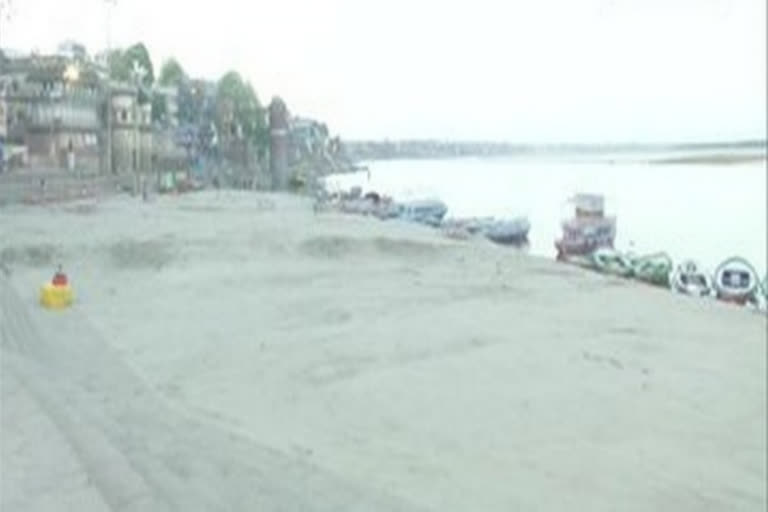New Delhi: The Central Pollution Control Board (CPCB) in its report informed on Wednesday that water quality of Ganga river has not improved during lockdown. It has rather deteriorated at many stretches across India during the corona-induced lockdown. The report also stated that seven out of 19 major rivers of India recorded an improvement in water quality since April after the lockdown was announced.
As per the study of water quality of major rivers in India, it has been observed that the Ganga's compliance with primary water quality is being reduced from 64.6 per cent to 46.2 per cent during the lockdown. Compliance of Beas, Chambal, Sutlej and Swarnarekha has also deteriorated.
The report stated that deterioration in water quality of rivers may be attributed to the discharge of untreated or partially treated sewage, pollutant concentrations are usually at their highest levels due to negligible dry season flow and no freshwater discharges from the upstream.
However, four rivers- Baitarani, Mahanadi, Narmada and Pennar were 100 per cent compliant to the outdoor bathing criteria.
READ: Mehbooba Mufti's daughter moves SC for mother's release
The report suggested that improvement in water quality of the major rivers may be attributed to minimal industrial effluent discharges in view of closure of almost all industries. No human activities involving the disposal of worshipped Pooja material and garbage, no anthropogenic activities such as outdoor bathing, washing of clothes, vehicle washing and cattle washing during lockdown phase, and cattle movement was also reduced considerately reducing biological contamination of surface water bodies.
While Ghaggar river failed to comply with Primary Water Quality Criteria for Outdoor Bathing Criteria, two rivers including Sabarmati and Mahi remains unchanged in terms of compliance.
The report was assessed with the samples of 19 rivers, observing it for parameters like pH, Biochemical Oxygen Demand (BOD), Dissolved Oxygen (DO), and Fecal Coliform (FC).
The analysis of results showed 277 out of 365 locations in April 2020 complied (75.89%) with Primary Quality Criteria for Outdoor Bathing, which implies that there is no significant improvement in water quality of major rivers monitored during the lockdown period. 27 State Pollution Control Boards had participated in the assessment and collected water samples from 19 major rivers including Beas, Brahmaputra, Baitarani, Brahmani, Cauvery, Chambal, Ganga, Ghaggar, Godavari, Krishna, Mahanadi, Mahi, Narmada, Pennar, Sabarmati, Sutlej, Swarnarekha, Tapi and Yamuna.
READ: My son is innocent, says father of arrested LeT operative



